We’re thrilled to be partnering with Julie to offer custom marine safaris with her as your private guide. We’ll charter the boat and set up an incredible itinerary tailored specifically to you; Julie will provide the expert insight into Africa’s incredible marine habitats.
Read our interview with her to discover why a marine safari might just be the sustainable, jaw-dropping African adventure you never knew to ask for! Then, get in touch with our team to make sure we include Julie as a guide in your next safari.
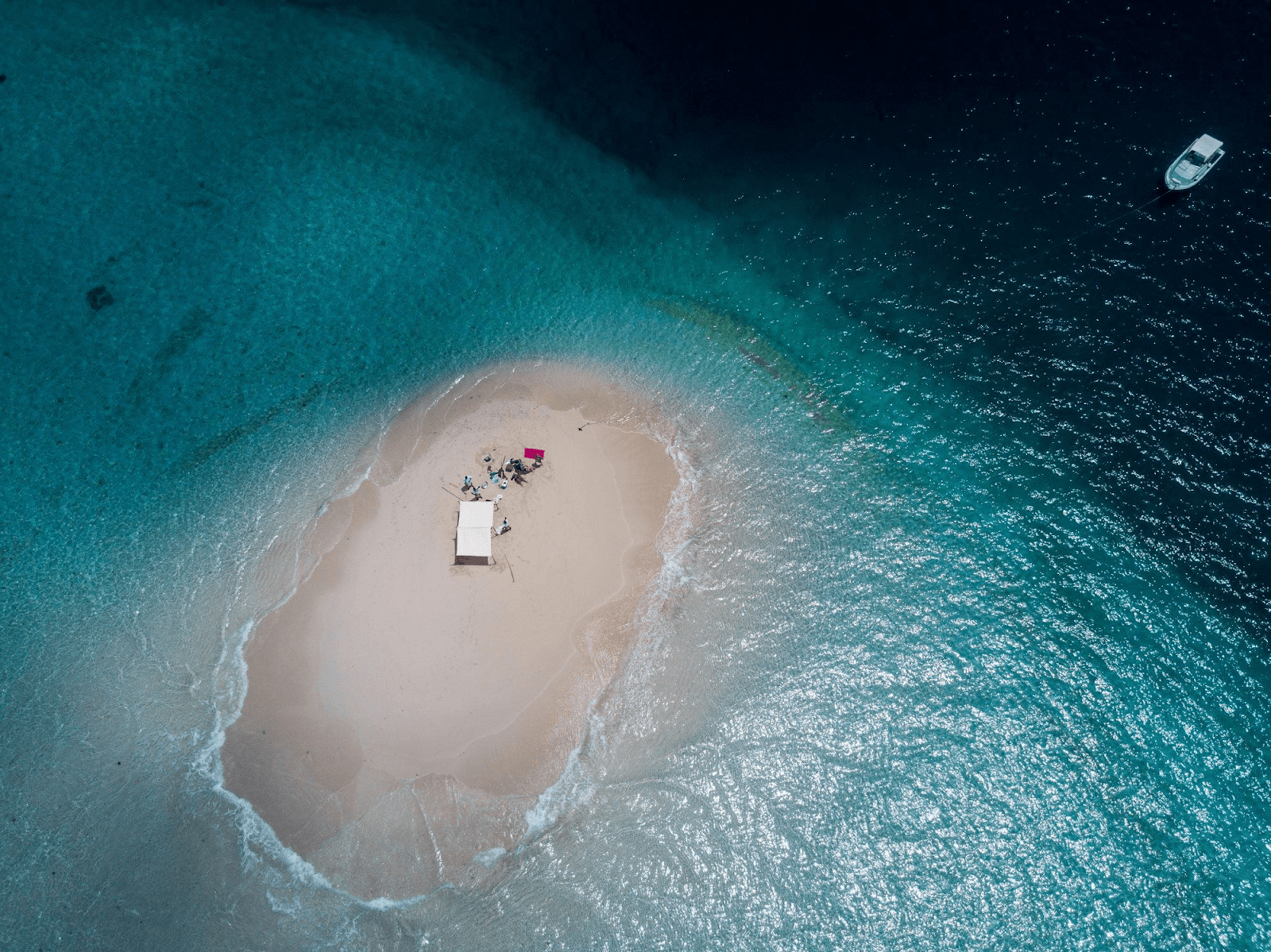
Getting to Know Julie Church
Your background is in environmental science. What drew you to the ocean?
As soon as I finished my environmental science degree, I decided the ecosystem I wanted to work in was the Indian Ocean. I started working in Indonesia, then in Tanzania, to monitor coral reefs and fisheries. And then I got my dream job in Kiunga, which is on the border of Kenya and Somalia. I was there for five years. That’s where I did research on various ecosystems for a community and development project for World Wildlife Foundation in partnership with the Kenya Wildlife Service.
From there I came back to Kenya and started working with IUCN (The International Union for Conservation of Nature) on a regional marine program. We focused on the Western Indian Ocean, which includes Kenya, Tanzania, Mozambique, South Africa, Somalia, Madagascar, Mauritius, Seychelles, and Comoros.
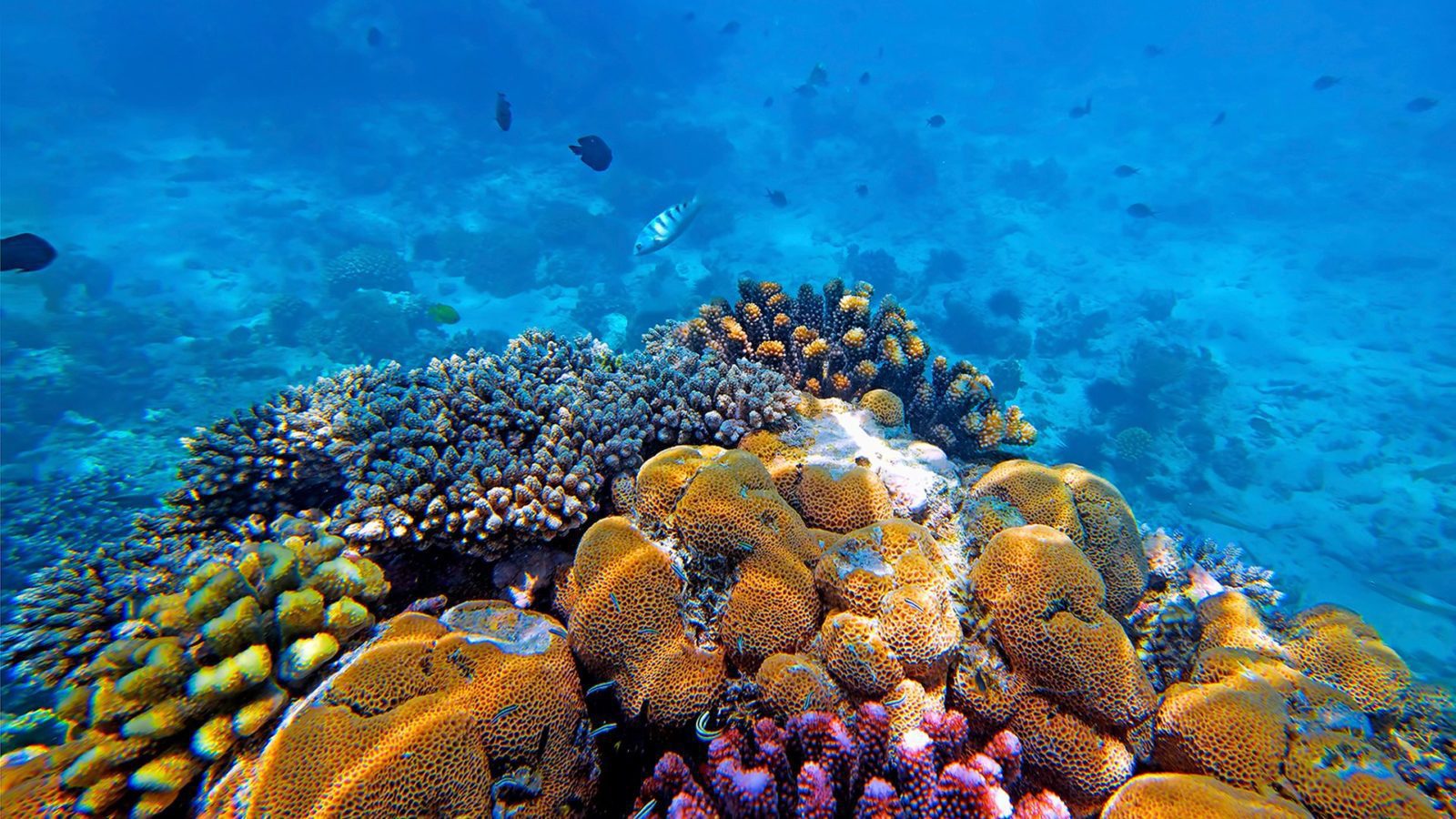
Where to Go on a Marine Safari
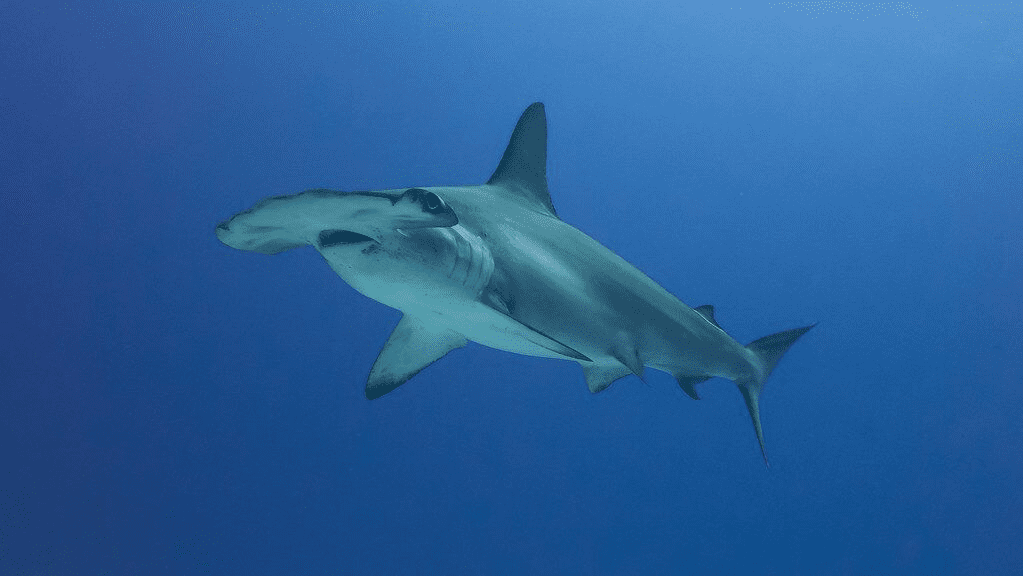
Where are some of the best places for a marine safari? What’s your favorite destination?
For serious diving and adventure, it is Sudan’s Red Sea. There, you’re down deep. You’re mixed-gas diving with 40 to 50 hammerheads. As you come up there are different species of shark, manta rays, shoals of snappers and sweet lips. All the little stuff on the way up is phenomenal. That is a dive marine safari. Another trip we are developing in the Red Sea is a partnership with the Jacques Cousteau Society who have done a lot of work there. I want to set up a citizen science safari where people can get connected to collecting data, so they’re not just wandering around diving. We will give them a task while out on dives, and the data they collect will feed into the Jacques Cousteau Society. We aim to have safaris twice a year for that, in October and April.
But a real marine safari could also be a trip to Bazaruto Island where you arrive in Vilanculos, get on the boat, and circumvent the archipelago. The diving there is really great. Plus, in July and August, the humpback whale migration is going on. You’ll see thousands of them breaching and dropping their babies. And back on shore, you’ll find the dugong researchers. Bazaruto really is the best location for dugong. Even if you might not see them, you’re going to be in that world. It’s fascinating.
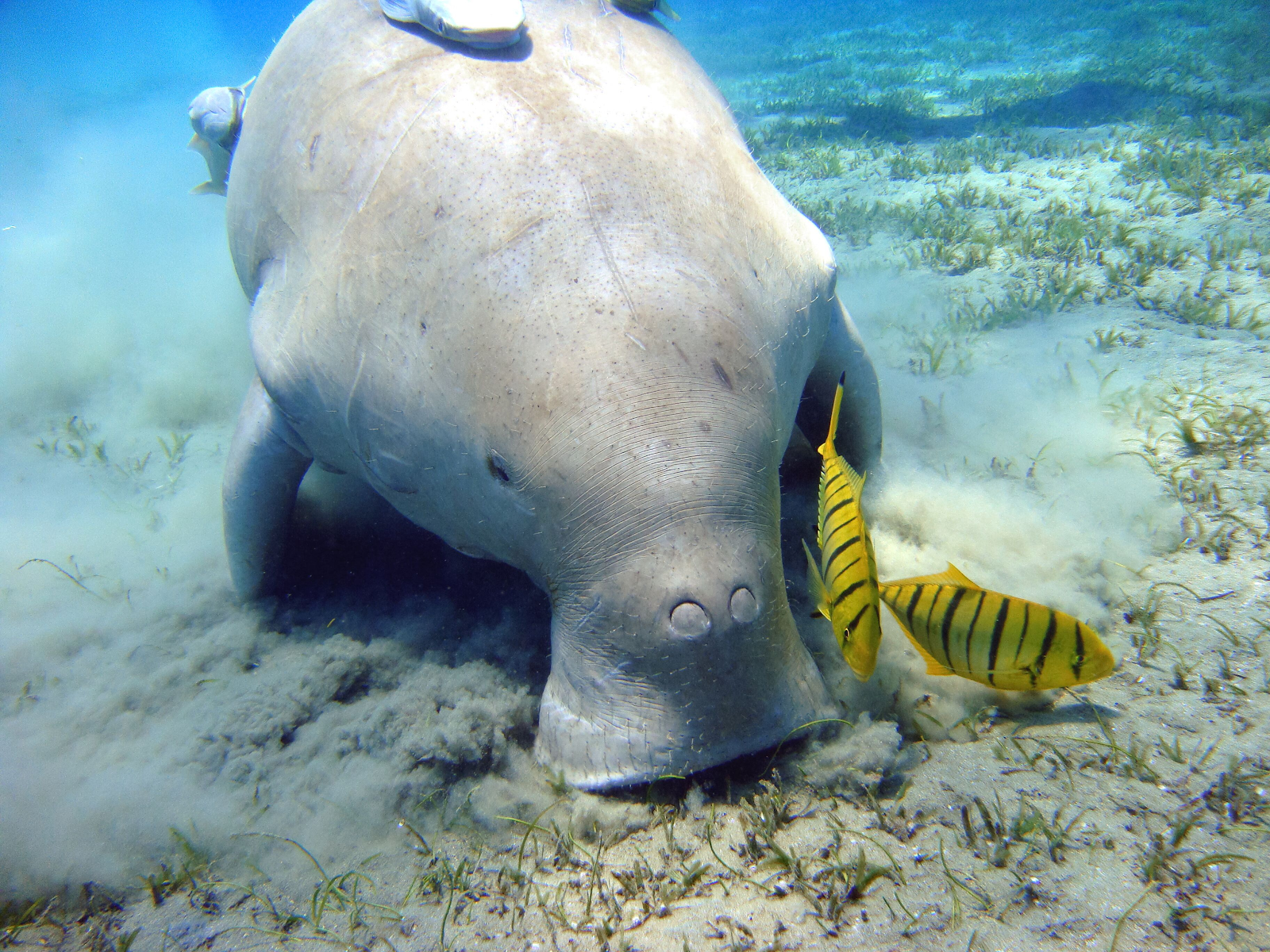
Another place is Kiwayu, Kenya. I lived there. I know where I’ve transplanted corals. I know the community. There’s lots of water skiing, wakeboarding, touring mangrove habitats, fishing for crabs, offshore fishing, and whale watching (in certain seasons).
All that to say, all of these locations are cool. It just depends on what you’re looking for.
Which places give you access to specific wildlife? What are the bucket-list experiences our readers should know about?
The hammerheads and sharks in Sudan are incredible. As are the whale sharks in Djibouti. The whale migration starts in May in southern South Africa, then continues north off the coast of Mozambique on to Tanzania’s Mafia Island and Zanzibar. And there are also whale sharks in Zanzibar! So it depends on the timing, but it’s all pretty cool.
Who Should Go on a Marine Safari (and Who Shouldn’t)
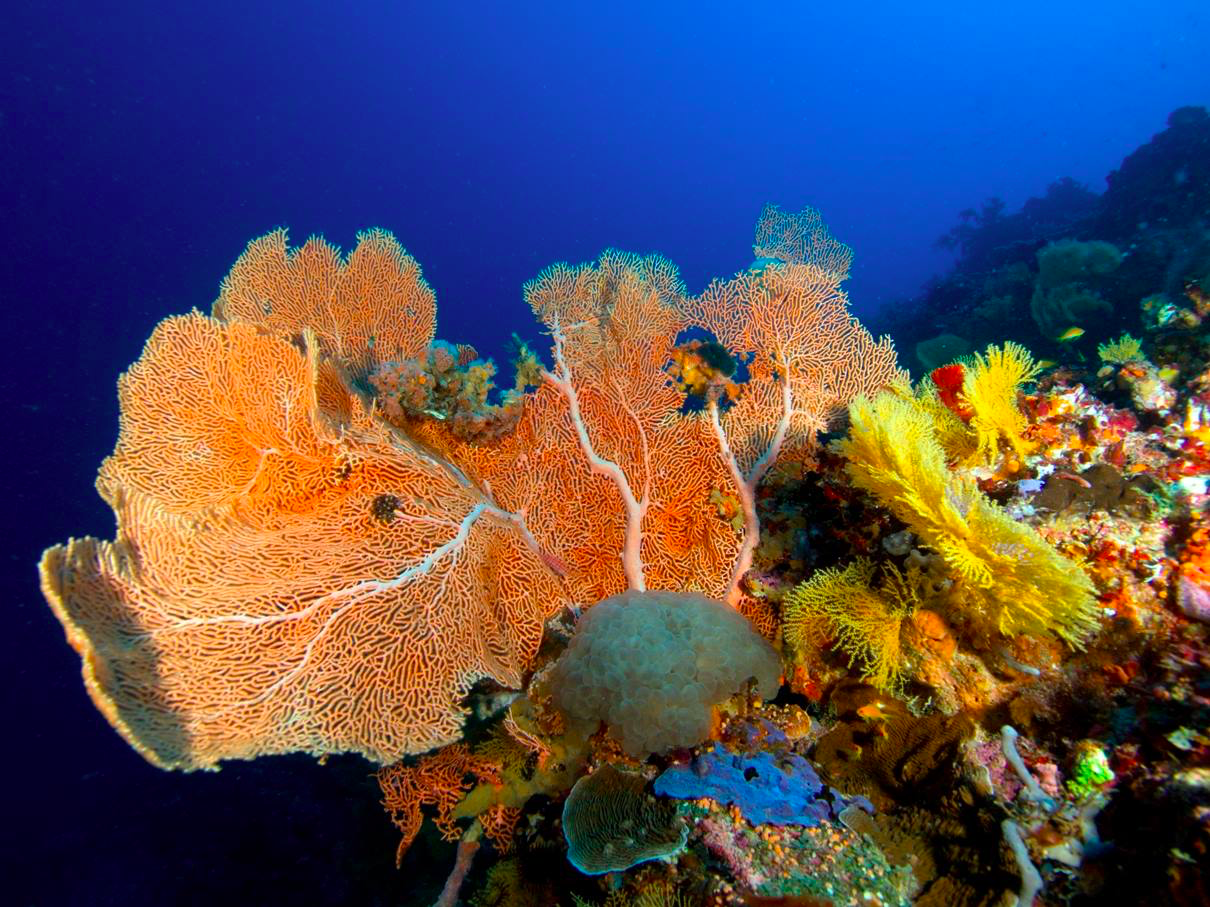
Who would especially love what you have to offer? Who goes home raving about you for weeks on end?
This experience is perfect for anyone who really loves the sea, who wants to explore every aspect of it. This is not a champagne trip. This is not a “let’s just go on a yacht as a family and do nothing and learn nothing about the sea” kind of trip.
This is a safari, so it’s going to have a similar appeal as a land-based safari in terms of curiosity and learning and everything else. People do this because they don’t know anything about the sea. Or they really know about the sea and know they have to do the sardine run. Or they say, “you’ve got to take me somewhere totally unique!” They all want to go away with an experience that was more than just looking at fish.
Which experiences are best for different types of travelers?
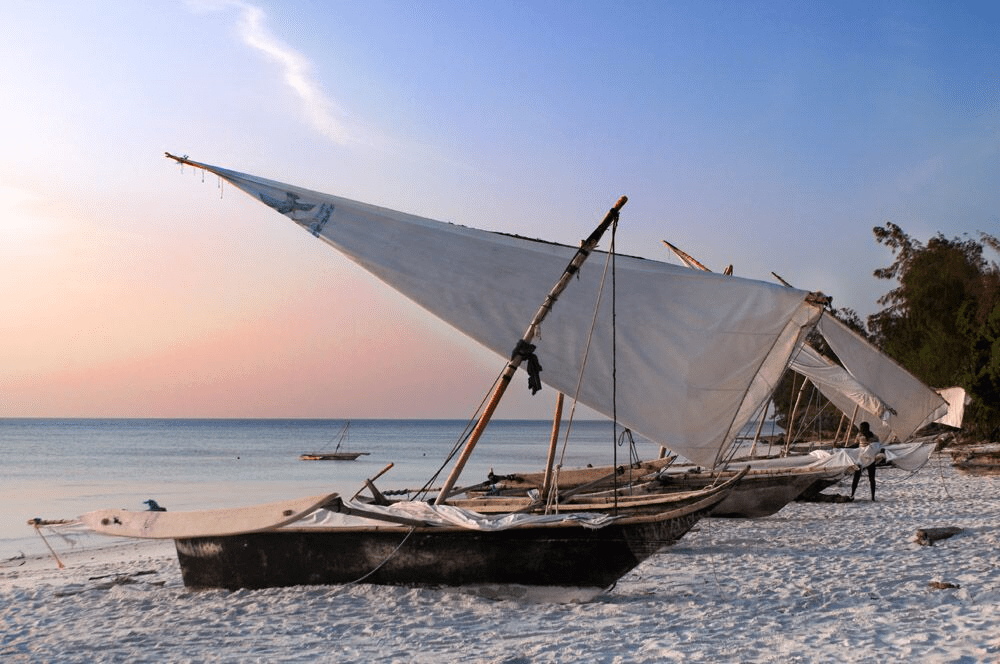
For families, I’d recommend Kiwayu Island in Kenya; Zanzibar, Pemba, Mafia, and Kilwa Islands in Tanzania; and the Quirimbas and Bazaruto Archipelagos in Mozambique. Those are the calmer areas. And you can tailor the safaris very differently for those sorts of family groups.
The same goes for older travelers and multigenerational trips. All of those locations would be a great fit, and the itineraries can be planned around the needs of each group.
For families to see the hammerheads and such, they have to be the more active type, your adrenaline-seeking family. Yes, we’re talking about Sudan, but I’ve been there with kids. It does happen.
Now the sardine run is totally not for kids–or families. It’s for 15- to 16-year-olds and up–seaworthy people, you know? It’s meant for those adrenaline-junkie types. You’re out and active on the sea for six hours at a time, searching for your wildlife. And you don’t know if you’re going to see it or not. You have to be quite tough and hardy and want to do it.
Is there a minimum age limit for children on a marine safari?
No, not at all. If you want to come on board with your kid, you’ve obviously got to be aware of that child and look after him. I would say the boats are easier for kids ages four or five, once they’ve learned to swim. But I would have taken my son as a two-year-old on a boat. It definitely depends on the kid–and the parents.
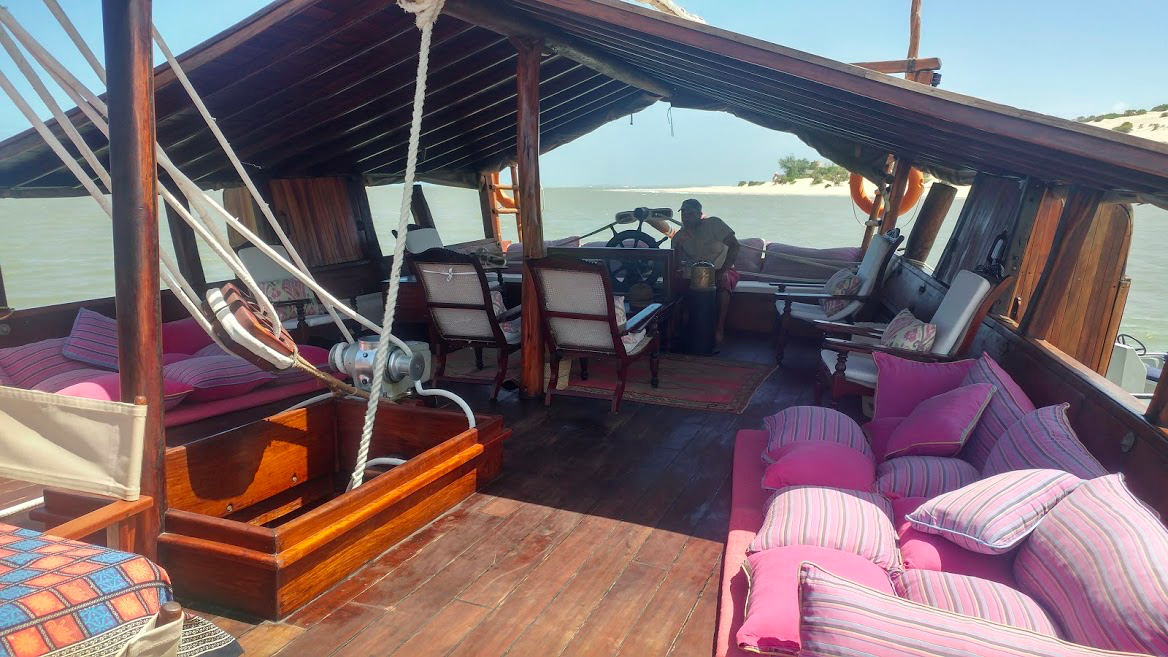
What if open water makes me nervous? Are there other options that feel less exposed
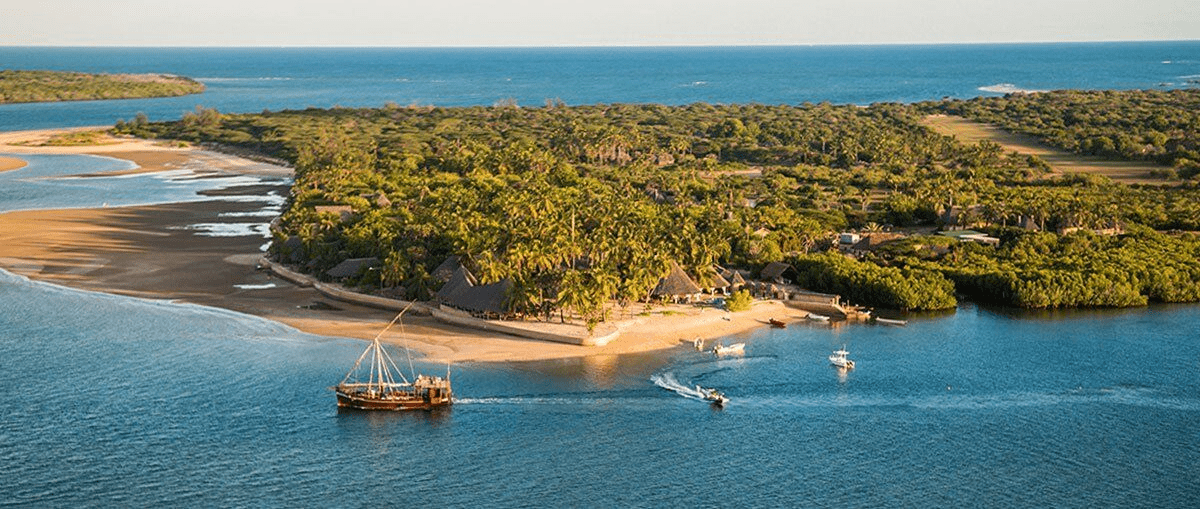
Any of our marine safaris can be calm. These are all archipelagos. That’s why we’ve chosen them. Speed boats can go outside the archipelago to do diving, then come back to the larger boat on the inside. As long as you’re on the leeward side of the archipelagos, it’s all fine. All this can be tailored to the client.
For instance, Lamu to Kiwayu is all inside the archipelago on the boat. Or you could just go up the west coast of Zanzibar and not cross the channel to Pemba. The same goes for Mafia. You don’t have to cross the channel, you can just hang around Mafia. There’s enough to do in the bay, on the various islands, on the sandbars… Bazaruto is that way, too. You don’t have to go on the outside.
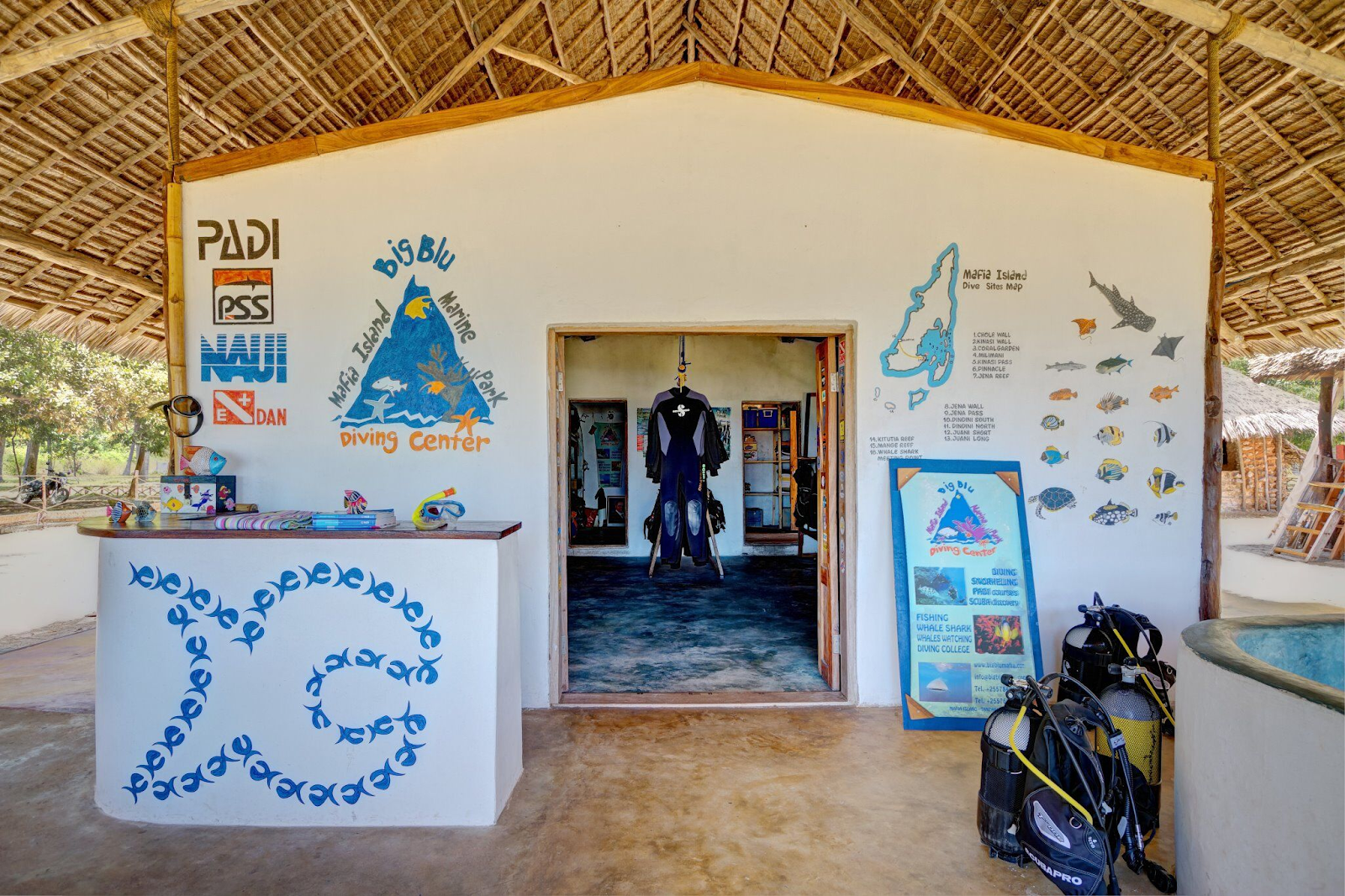
Is there any type of traveler for whom this wouldn’t be a good option?
For people who get seasick, there’s often a barrier or a fear factor of sorts preventing them from going for it. But if you can take medication and get over the fear of seasickness, you’ll be just fine.
As for older travelers, they have to be very comfortable getting on and off the boat. So mobility needs to be considered, and we would select a boat for that purpose. I also have been on yachts with disabled people. And they love it because when they’re in the sea, they’re free and they’re divers,
For people who are just really scared of the sea, I’d say, “please don’t be scared of the sea because if you come with me, I can make you not scared of the sea!”
Why You Should Make Time for a Marine Safari
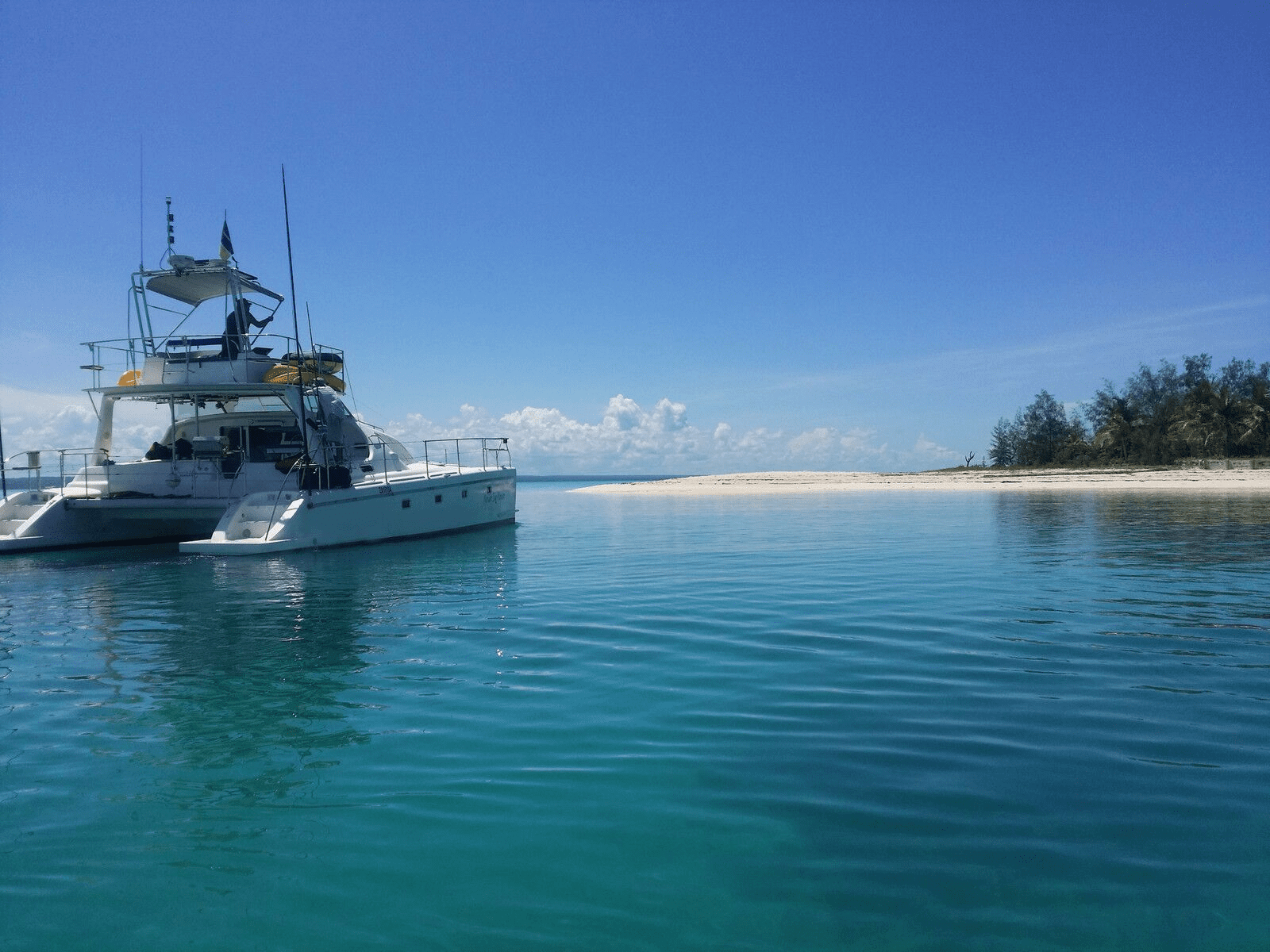
What makes a marine safari uniquely special? What do “traditional” land-based safari clients say after traveling with you?
I think that unique takeaway is that people haven’t really understood that you could actually go on safari on the sea. You can tailor it to your needs. You are going to learn about the ocean. This is my whole ethos! We’ve only explored 5% of this ocean that we are all dependent upon. No one understands how it influences us and how we influence it.
You’re going to go away having learned the role of a mangrove or seagrass bed or coral reef–all various ecosystems. You’re going to see our ocean big five. You’re going to learn their gestation periods, and you’re going to have fun!
You can be as chilled-out as you want. You can lay back on the boat and read a book or go water skiing at six in the morning. You can do lots of snorkeling! And the best part is that you’re going to see it all in front of you. You’re not just going to see it on TV.
What is the price range for this kind of experience?
Prices for marine safaris vary depending on the vessel, length of trip, and destination. Here are a few options to give you an idea of what’s available.
- A seven-night safari for four on a 56-foot catamaran in the Quirimbas in Mozambique starts at $6,000 per person.
- A seven-night safari for six an 85-foot catamaran is $18,000 per person.
- A seven-night safari for six to Sudan is $13,625 per person.
What are some of the more unusual experiences you recommend?
Where we can, we will link up to local scientists. For instance, when we’re doing the sardine run, you’re not just a punter on a boat. We are going to work very closely with the shark scientists there. And the guys who know the sardine run. When you leave you, you will have had another level of experience, rather than just ticking a box off your list.
I also love linking up to some of the cultural elements. If you go to Mozambique, to Quirimbas, you’ve got Ibo island. It’s a fascinating island on its own, and the Portuguese left it in ruins. All the Mozambicans live behind the heart of this town. And you’ve got all the marine life!
The same goes for Lamu Kiwayu. We’ve got sixth-century buildings there! We’ve got an amazing history! There’s so much trade route history in all of this! It’s incredible.
Climate Change and Conservation
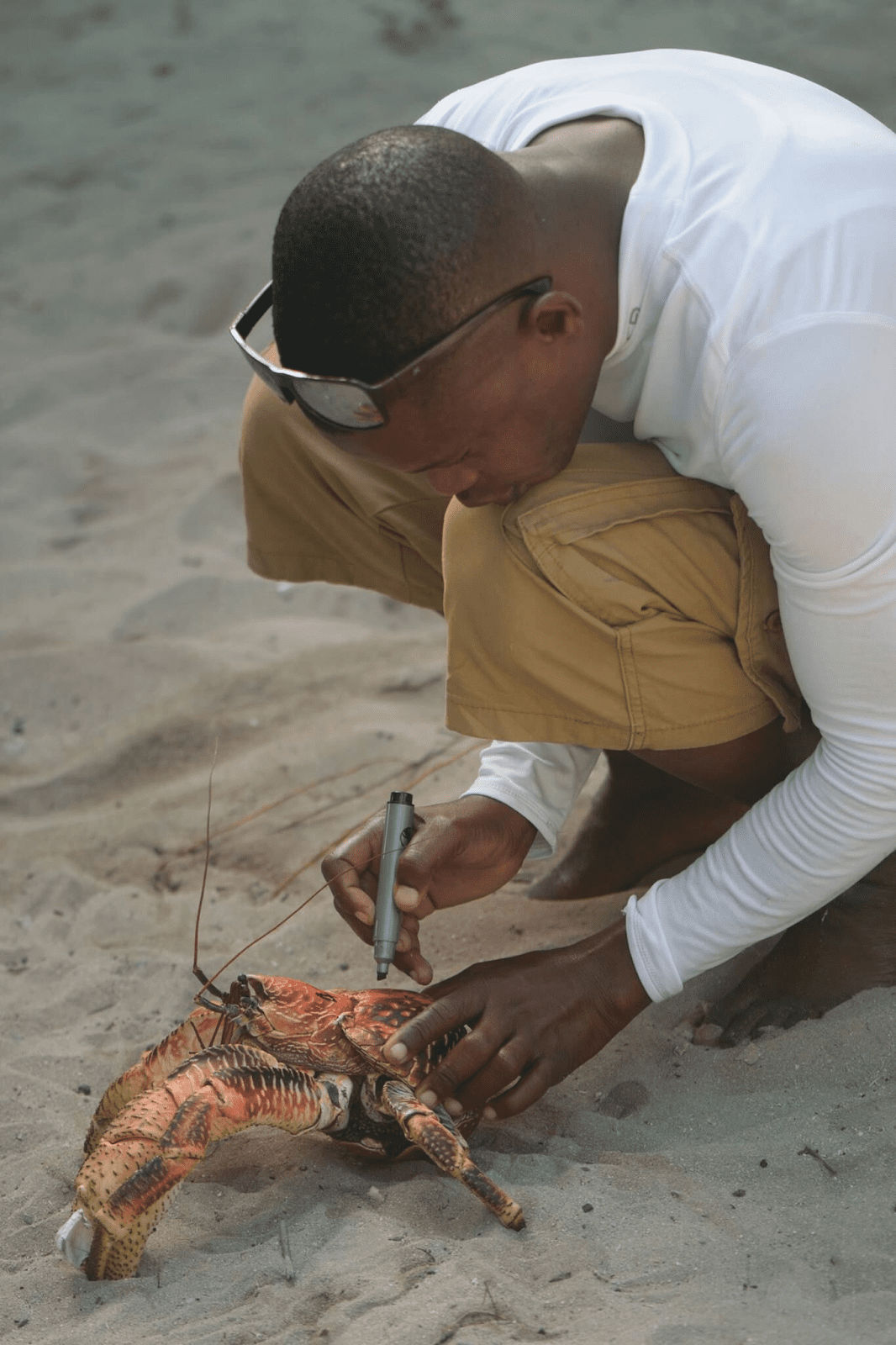
We read a lot about coral bleaching. How has the coast of Africa been impacted? What are the biggest threats right now to the ecosystem?
The coral bleaching is a climate change issue. I watched them die between 1997 and 1998. And then we had second generations of corals. The other more recent corals aren’t as crazy as we had then. The first wave killed out really old, first-generation coral. Now, the fast-growing ones might die, but then they come back again.
I actually wouldn’t say coral bleaching is our biggest threat at all. Obviously, climate change is one of our biggest threats, and coral bleaching is an indicator of that. Definitely. But our biggest threats here are poor fishing techniques, lack of policy, no selective process–people don’t understand fishing. That’s much more of a threat. That, and poor development.
Tell me a bit about Seas4Life.
Seas4Life is all about safaris and conservation education. We have a trust, and the aim of the Seas4Life Trust is very simple: we’re a voice for the sea. We do epic, extraordinary events that raise awareness about the seas and our waterways and raise funds for impactful projects. Our first event is in July, when we are cycling from Nairobi to Watamu, which is 680 km off-road. We’re raising awareness about our rivers that flow into the sea and the pollution that takes place along that route. The funds raised in events like this will help us establish the fund and invest in impactful enterprises, like efforts to remove the plastic and turn it into energy in a clean way.
Other potential events might be to swim the coastline of Kenya or horseback ride down the Rift Valley. The aim of all these events is awareness, fundraising, and investment into impactful programs. We want to foster a culture of connecting to our earth through extraordinary experiences where you’re left thinking, Yeah. We are just a small little thing on this big blue planet.
Get Inspired
For more inspiration on what your marine safari with Julie Church might look like, check out this itinerary: Mafia Island Archipelago Sea Safari. As always, this safari is 100% customizable according to the season, conditions at sea, your sailing and diving preferences, and the types of marine life you’d like to see. No two Extraordinary Journeys safaris are ever the same, and this is no exception.
Plan Your Diving Safari
Ready to start planning your own incredible African marine adventure? We make the process stress-free and enjoyable. Call or email us today to explore your best options for a diving safari you’ll never forget!
Then, start packing that suitcase because we’ve got all the details covered.
